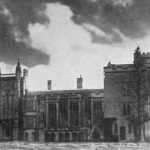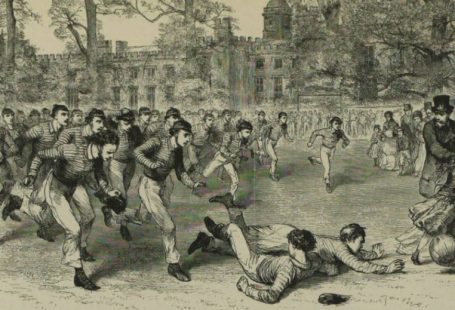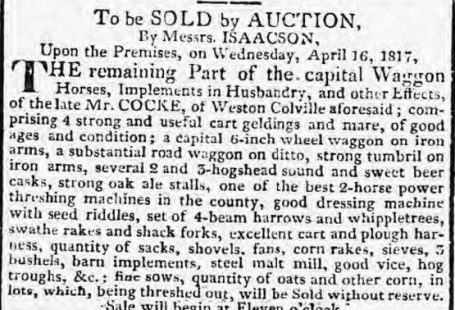This week we have added 70,450 new pages to The Archive, with two new and very important titles joining us from home and abroad.
We have added an extensive run of pages to the Westminster Gazette, which was seen by some as ‘the most powerful paper in Britain.’ Established in 1893 by E.T. Cook, the Westminster Gazette was a liberal newspaper, which found its audience in London’s gentlemen’s clubs and was consequently known as a ‘clubland paper.’ Despite this audience being small, and the newspaper’s circulation being tiny, these were powerful gentlemen and thus the Westminster Gazette became a vastly influential publication, and was a must-read for politicians of the day.
Westminster Gazette | 12 January 1900
The Westminster Gazette contained a range of sketches and short stories, and featured early works by famed writers including Raymond Chandler, Anthony Hope, D.H. Lawrence, Katherine Mansfield and Saki, as well as travel-writing by Rupert Brooke. In 1928 the paper merged with its liberal rival the Daily News under Weetman Pearson, becoming a national morning newspaper of ‘less exalted character.’
Our other new title this week is the Madras Courier, Madras’s earliest English language newspaper, and part of the British Library’s collection of early English language Indian newspapers taken from the British Museum Library and the former India Office Library. It was first published on 12th October 1785 by Richard Johnston and soon became a leading newspaper of the time.
Madras Courier | 8 October 1800
Madras, now known as Chennai, was the centre of the British Madras Presidency, after British forces had captured most of the surrounding area of Tamil Nadu. Madras became a major administrative centre for the British in South India, which is reflected in the pages of the Madras Courier.
The Madras Courier became the officially recognized newspaper for the printing of Government notifications, containing reports from parliament and ‘foreign intelligence.’ It also featured local news, often pertaining to military movements, as well as advertisements. The paper ceased publication on 19th January 1819.
The Westminster Gazette and Rupert Brooke
One of the Westminster Gazette’s most famous contributors was poet Rupert Brooke, known for his moving sonnet The Soldier. Brooke contributed a series of travel writings to the publication, including a series entitled ‘Letters from America’ in 1913. When Brooke died en-route to Gallipoli in 1915, the Westminster Gazette felt the poet’s loss all the more acutely due to the publication’s personal connection with him.
Rupert Brooke | The Sphere | 8 May 1915
In 1917, the Westminster Gazette gives a rather romanticised account of his death. Brooke went ashore on the island of Skyros for a ‘solitary walk,’ and ‘sat down to rest – and to receive inspirations, in the deep reverie which gave him the mood of what he believed would be his finest poem. Then a little, grey, quite insignificant-looking fly stung him on the lip.’
It was this mosquito bite that killed Brooke; having become infected, Brooke developed sepsis and died two days later. The same article in the Westminster Gazette describes his burial on Skyros:
Twelve tall Australians carried the body from the landing-stage up the gentle slope of that strange valley, whose sides above the rubble rise into colonnades…Little fantastic holly bushes, low shrubs, patches of musk and thyme, from which a heady scent rose as the bearers stumbled over the stony ground, showed black against the whiteness under the streaming flames of torches. Two miles from the entrance of the valley, in which there is no hamlet, no cottage, not even a road, there is a little hollow, where a few olive-trees made some shade, and here the grave had been dug…But the pit was not deep enough, and two young officers, unwilling to leave such a service to less loving hands than theirs, took spades and hollowed it deeper themselves.
Rupert Brooke’s tomb on the island of Skyros | Illustrated London News | 11 April 1931
Rupert Brooke became a symbol of youthful idealism, due to his patriotic earnestness to serve his country, which was reflected in his poetry. The Westminster Gazette mourns his loss in February 1917, recalling how he ‘responded to the call to arms in defence of a just and, as [he] saw it, a largely ethical cause…It is grievous, indeed, to reflect that such magnificent material is forever lost to us.’
Two years later, the same newspaper reports how a memorial to Rupert Brooke was due to be unveiled at Rugby School Chapel. The marble memorial was described by the Westminster Gazette as a ‘singularly beautiful piece of work – warm, delicate, and sympathetic.’ It was inscribed with his sonnet The Soldier, and was funded by subscribers from England, Canada and the United States.
Register now and explore the Archive
New Titles
Title | Years Added |
| Westminster Gazette | 1893-1907, 1911, 1914, 1917-1922, 1925 |
| Madras Courier | 1790-1795, 1798, 1800-1813, 1815-1816, 1818 |
You can learn more about each of the titles we add to every week by clicking on their names. On each paper’s title page, you can read a FREE sample issue, learn more about our current holdings, and our plans for digitisation.
You can keep up to date with all the latest additions by visiting the recently added page. You can even look ahead to see what we’re going to add tomorrow.











